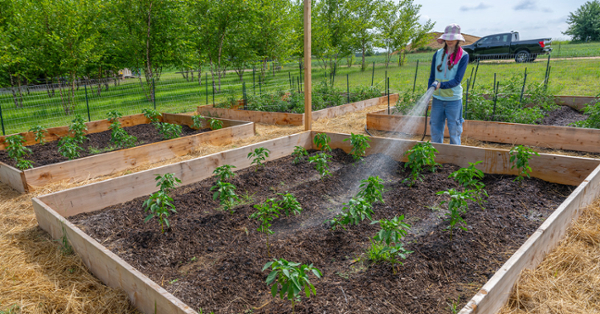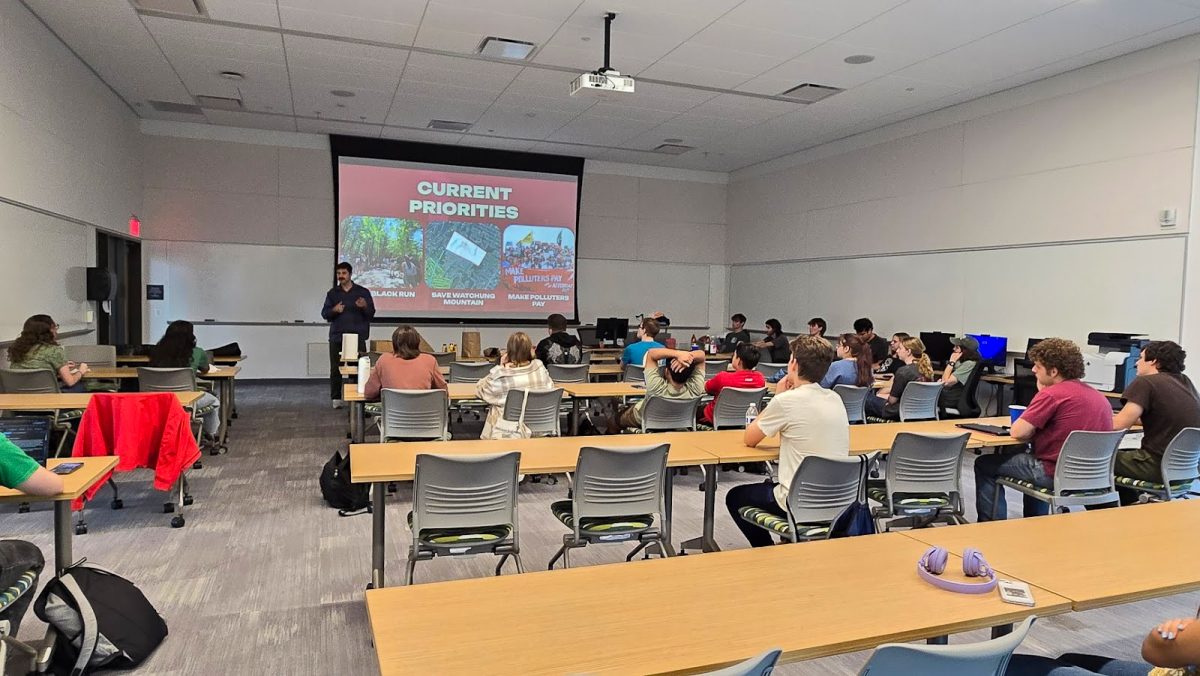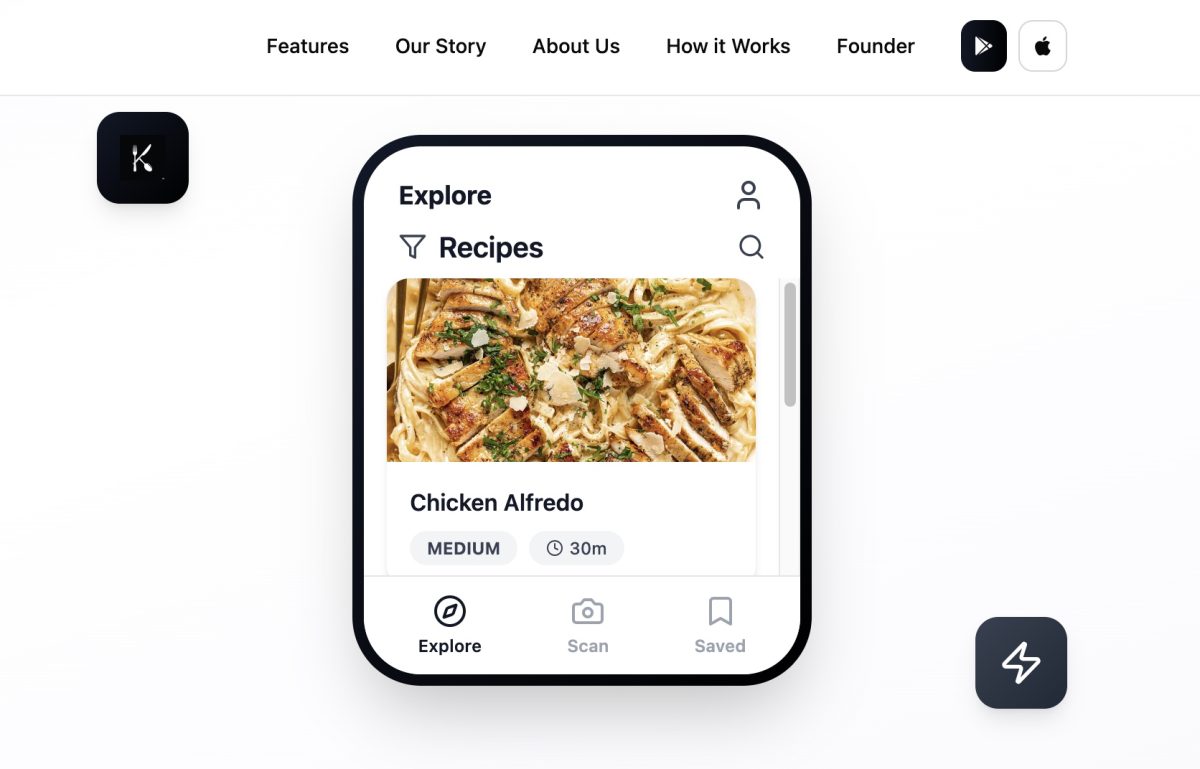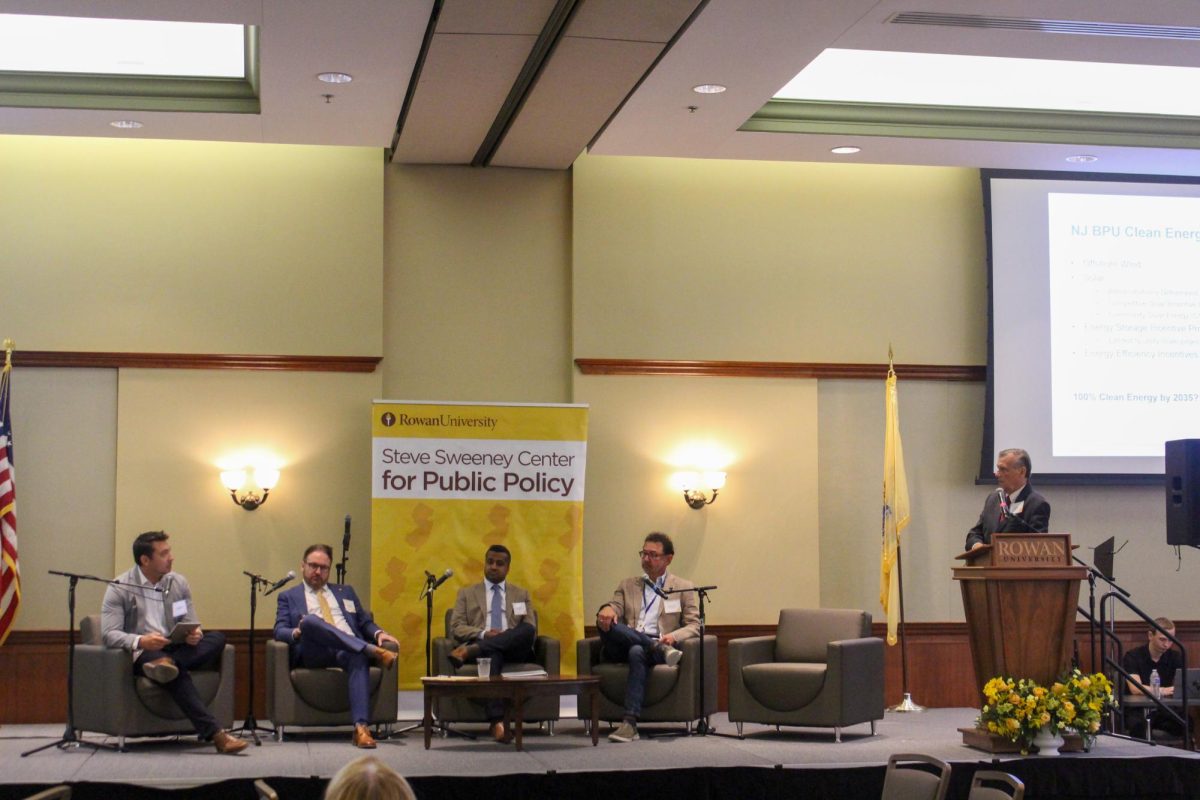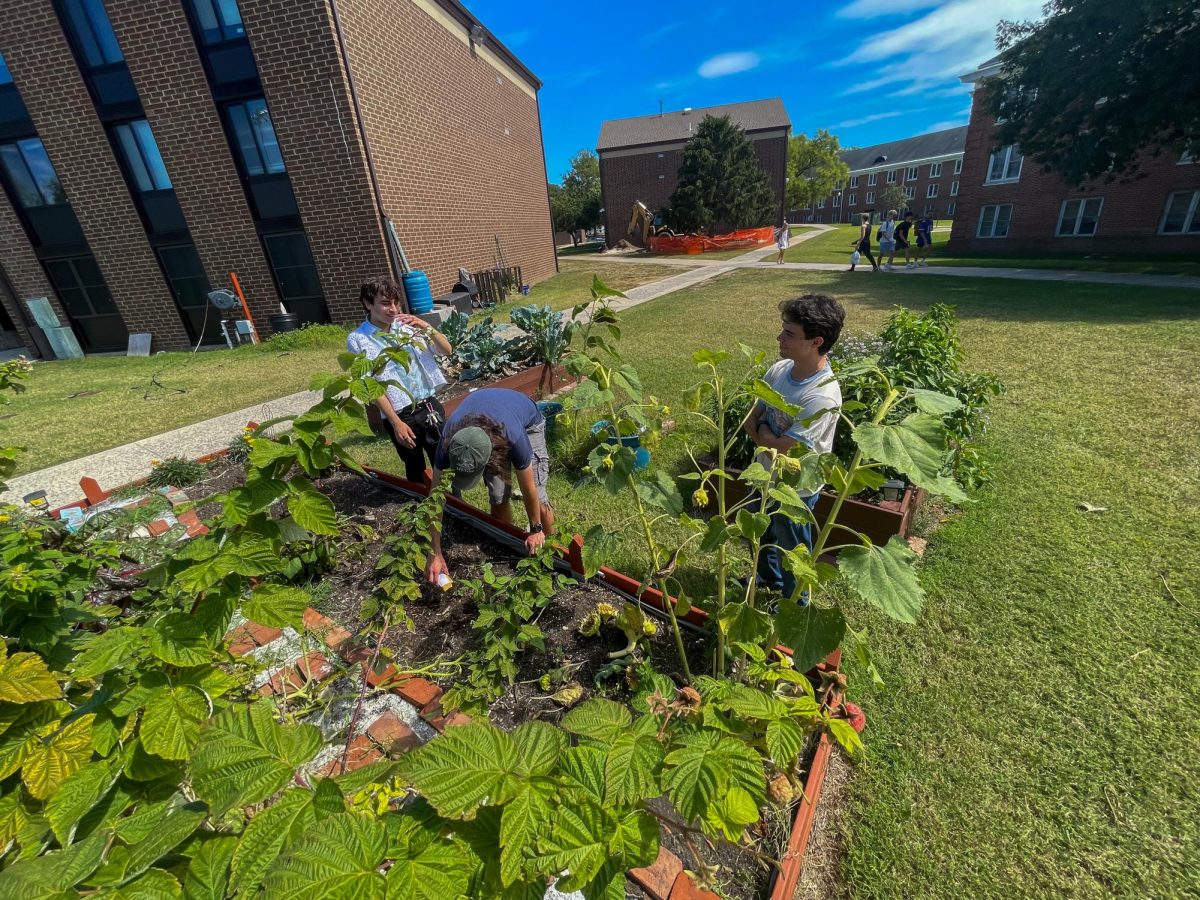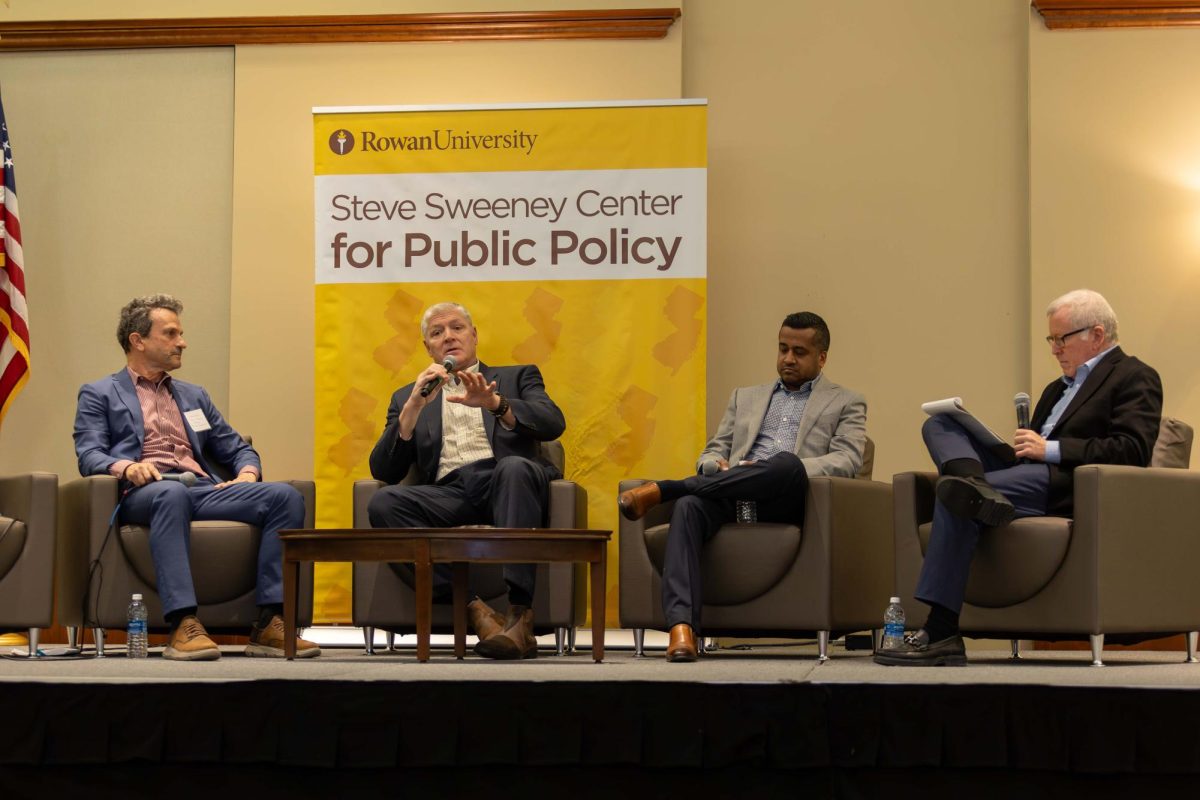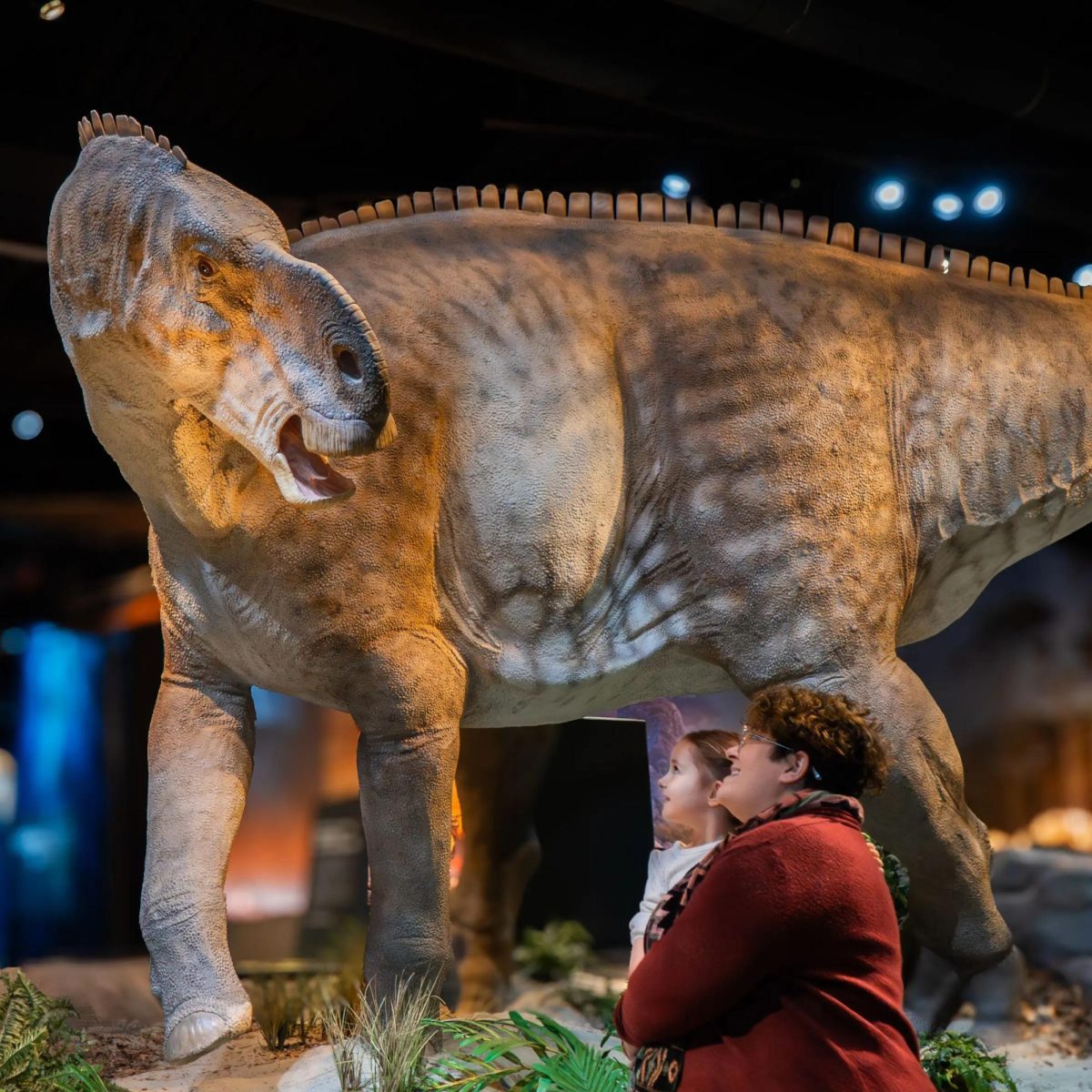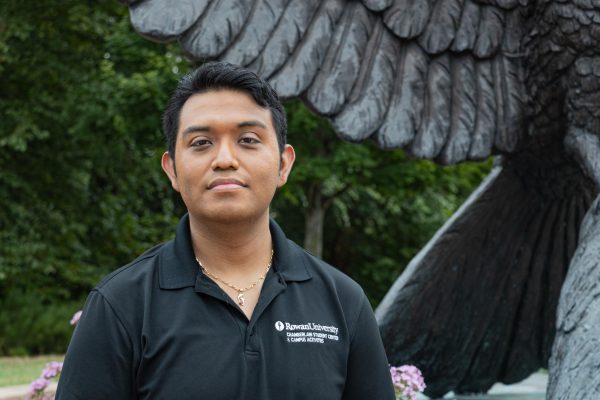An earlier version of this article originally appeared in the The Whit, a student-operated campus news outlet for Rowan University and a content partner with South Jersey Climate News.
At Rowan University’s West Campus, students and faculty are working together to monitor soil, grow crops, and test regenerative agriculture techniques designed to transform South Jersey food systems.
The farm, launched through Rowan’s School of Earth and Environment, involves Dr. Cynthia Hall, an assistant teaching professor in the departments of geography, planning, and sustainability within the university’s School of Earth and Environment. Dr. Corianne Tatariw, an assistant professor of environmental science, and Dr. Hieu Nguyen, a professor of mathematics.
The project, funded through state grants and supported by local partnerships, aims to teach hands-on skills in advanced sustainability and serve those with limited access to fresh, nutritious produce.
Raised beds bringing vegetables sit atop Rowan’s West Campus’ sandy soil, low in organic matter and potentially contaminated with heavy metals.
To boost fertility, the team layers mushroom, compost, and mulch, using foot traffic and rainfall to help nutrients seep deeper. Even in its first year, progress is evident.
“Soil forms over geological time. It can take a decade before you really start to see benefits. That’s one of the challenges. You’re asking farmers to invest in practices that take many years to pay off,” said Dr. Tatariw.
Students monitor microbial activity, nutrient levels, and moisture content, linking the data to above-ground growth and connecting theory to practice.
Above the soil, Dr. Nguyen focuses on the air. Using artificial intelligence (AI) driven drones, he helps capture crop data and detect early diseases using new and innovative technological methods.
“I want to help farmers. Their work is incredibly labor-intensive. My goal is to build open source technology that’s affordable and easy to use,” said Dr. Nguyen.
Drone operation, however, doesn’t come without challenges. U.S. Federal Aviation Administration (FAA) regulations include the requirement of a human operator, limited flight times, and complex algorithms designed to interpret the data coming through.
“Math is the engine under the hood of AI. We’re collecting thousands of images and environmental measurements. Processing the data helps us make predictions that humans alone can’t,” said Dr. Nguyen.
Through his leadership on the project, students are able to gain hands-on experience assembling drones, coding, algorithms, and interpreting results, bridging theoretical knowledge with practical skills in the field.
Complementing the technological side of the farm is Dr. Hall, who also serves as the demonstration farm site coordinator, with a focus on leading her student workers to plant in several different ways.
“We started with an empty field in June. Students planned crops, built raised beds, mixed soil, and maintained the crops by hand. Everything was done manually to show that communities can grow food even with limited resources,” said Dr. Hall.
Students helping on the farm are learning persistence, problem-solving skills, and the rewards of nurturing life. Through each day’s work, they also gain a sense of ownership and connection to the land, seeing how careful planning and consistent effort directly affect the growth of the crops.
“Planting a seed and tending it every day teaches critical thinking and resilience. Harvesting something they helped grow, like a single tomato, brings real satisfaction,” said Dr. Hall.
Later phases of the project will involve distributing produce to food banks and operating a student-run farmers’ market on campus, with a heavy emphasis on education through logistics, economics, and social responsibility of local food systems.
Dr. Hall’s commitment stems from both science and personal experience as a farmer. She owns her own one-acre farm alongside her husband, Micaiah Hall, in Lawnside, N.J. The couple established Free Havens Farms in 2017 with a vision to grow high-quality, chemical-free produce and provide access to underserved communities.
“For me, as a foodie, I came from the perspective when I started growing food and I tasted what we had grown for the first time, I was like Oh, I’m sold,” said Dr. Hall.
Dr. Hall credits her husband with introducing her to gardening through his first job working on a farm, joking that she’s been spoiled ever since. Through her farm, it’s been vital to provide a blueprint to base Rowan’s one-acre regenerative farm on. Dr. Hall even emphasized biodiversity through raised beds, containers, fruit trees, chickens, and the future construction of a greenhouse.
Her vision for Rowan’s farm goes beyond production. She hoped to create a space where everyone, from students to residents, can engage with food, soil, fountains, and even a butterfly garden.
“It’s about building a community around food and learning,” said Dr. Hall.
The project also aims to develop a regenerative farming index. Dr. Nguyen described it as a scale from zero to 10, with zero representing soil kept alive only with chemicals, while ten reflects self-regenerating land. The index could ultimately inform farmers, guide policy, and determine overall funding.
Meanwhile, sensors, drones, and student-collected data feed algorithms that refine irrigation, pest control, and crop selection. The ultimate goal is scalable, sustainable farming that supports communities and informs global practices, thus making Rowan’s overall role crucial.
“Rowan is growing intentionally, supporting South Jersey directly. We’re modeling regenerative agriculture in a community that’s deeply rooted in farming. There aren’t many programs nationally that are focused on this, so Rowan is uniquely positioned to provide the expertise, space, and resources right here in our backyard,” said Dr. Hall.
The funding steps from state grants, including the support of New Jersey Democratic Sen. Cory Booker’s office, complement other West Campus projects like aquaponics. Aquaponics is a sustainable food production system that combines raising fish and hydroponics, which means growing plants within water to create a symbiotic relationship where fish waste fertilizes plants, and plants filter water for the fish.
Overall, students can gain access to academic courses, practical experience, and opportunities to contribute directly to food security through the project. Dr. Hall stressed the community impact of the project.
“The biggest beneficiaries are local communities. Students gain hands-on experience, and bring her access to high-quality, locally grown produce,” said Dr. Hall.

